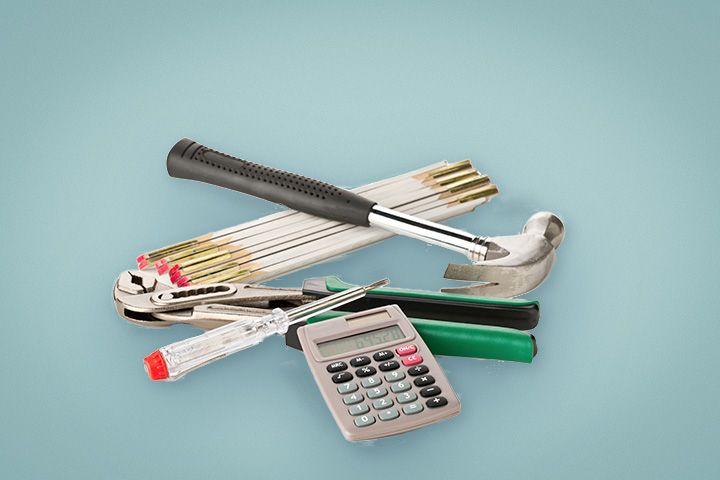Gift or inheritance: which is the most tax-efficient?

Keytrade Bank
keytradebank.be
October 21, 2020
(updated January 24, 2022)
4 minutes to read
What happens to my assets if I (suddenly) pass away? Granted, it's not exactly the most pleasant question you can ask yourself when you wake up in the morning. But it may be advisable to stop and think about this briefly each year. It will save your loved ones a lot of headaches, and maybe even a huge bill from the tax authorities.
In the event of your death, your heirs will have to pay inheritance tax (death tax). The amount of this inheritance tax will depend on factors such as:
- The degree of kinship: for example, rates for children and partners are significantly lower than rates for non-family members.
- The size of the inheritance: the inheritance tax will be based on a system of progressive brackets. If the amount reaches a higher bracket, it will be taxed more (see below).
- The region where the deceased lived the longest in the last five years before their death. Inheritance tax rates are not the same throughout Belgium: they are different in the country's three regions.
Depending on these factors, the inheritance tax may vary from 3% to 30% between lineal relatives, spouses and legally cohabiting partners.
Rates between lineal relatives, spouses and legally cohabiting partners

The rates between brothers and sisters are far higher (depending on the region): 20% in the lowest bracket and 65% in the highest bracket. The rates between non-relatives are as high as 25% to 80% (depending on the region).
The inheritance tax is based on the value of both the movable property (money, investments, jewellery and so on) and real estate (houses, land and so on) of the deceased. Goods that are located abroad are also taken into account.
The inheritance tax between lineal relatives is based directly on the net share received by each beneficiary. The calculation is therefore made for each beneficiary separately, depending on their relationship with the deceased. Existing debts and funeral expenses will be deducted. All three Belgian regions also apply various inheritance tax exemptions and reductions.
Gifts: an attractive alternative?
Whether you're 25 or 75, it's a good idea to think about asset planning as soon as you start accumulating assets. If you don't take any action, your next of kin will have to pay inheritance tax. As a result, gifts may also be an interesting option.
Gifts have advantages, but also disadvantages. Gifts are final, unlike a will, which you can keep on changing. You can never claim back what you have parted with as a gift, except in very exceptional cases. Before you make a gift, you should therefore have a clear view of your future income and expenditure.
When you make a gift, you also need to take into account your so-called reserve. In Belgium, that is the portion of your assets reserved for your surviving spouse and/or children and that cannot be the object of a gift. Furthermore, children are always entitled to half their equal share of the assets. For example, if you have two children, each child will always be entitled to one quarter of the assets. That share is their inviolable right. When you make a gift, you need to bear in mind that in the end, each child will always be entitled to at least half of your assets.
There are several ways to make a gift. (Here we only discuss gifts of Belgian movable property between private individuals in Belgium.) The most common ways are a gift by bank transfer and a gift via a Belgian notary. Which method is most suitable for you will depend on what it is you want to give away (a gift of registered shares is only possible by notarial deed, for example), the conditions you would like to attach to the gift, the level of evidential value you want and the risk of inheritance tax being levied if the gift was made less than three years before your death (see below).
- A gift by bank transfer This means that you transfer money or securities (shares, bonds, investment funds and so on) to the beneficiary's account. You will not have to pay any gift tax on this amount, and you will not have to involve a notary. However, if you die within three years, the beneficiary will still be required to pay inheritance tax on the gift. This potentially exempt period is currently three years in Belgium, but there is a chance that the Flemish Region will extend this to four years.
- Via a Belgian notary The notary can draw up and register a deed for your gift. In that case, you will be required to pay a 3% or 3.3% gift tax. You can add various clauses to this deed. For example, if your gift is an investment portfolio, you can specify that you will still be the recipient of all income from your investments – dividends, for example – until your death. There are also other possibilities. You can add a clause of conventional return, which means that the gift will automatically be returned if the recipient dies and has no children. You can also add a prohibition on disposition, a prohibition on inclusion into matrimonial property and so on. If you make your gift by bank transfer, the possibilities are far more limited.
The gift tax rate is 3% in the Flemish and Brussels-Capital Regions. In the Walloon Region, the rate is 3.3%. These are fixed rates: they do not change based on certain brackets like inheritance tax.
When is a "present" a gift?
So when is a handful of banknotes under the Christmas tree for your children or grandchildren considered a gift? Legally, there is no exact limit as to what you can give away as a gift each year. In practice, however, the tax authorities will look at your total assets. If the value of all your presents together is less than 1% of your total assets, they will effectively be seen as "presents". If the value of all your presents exceeds 1% of your total assets, the tax authorities will consider them as "gifts". You can therefore give away up to 1% of your total assets each year.
The conclusion that can be drawn here is that you should consider the choice between a gift by bank transfer or by deed carefully. Each has its pros and cons. If you make a gift by bank transfer, you can always decide to have it registered later in life. In that case, you will pay a 3% or 3.3% gift tax on the amount.


